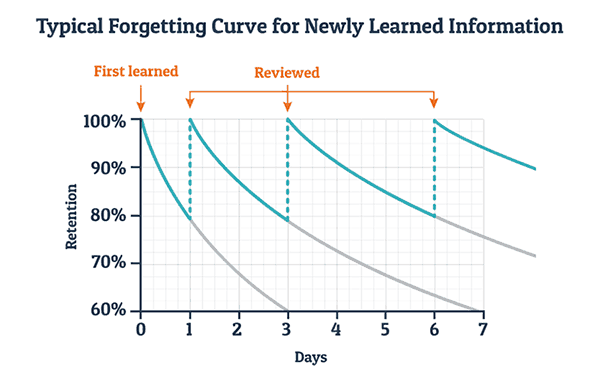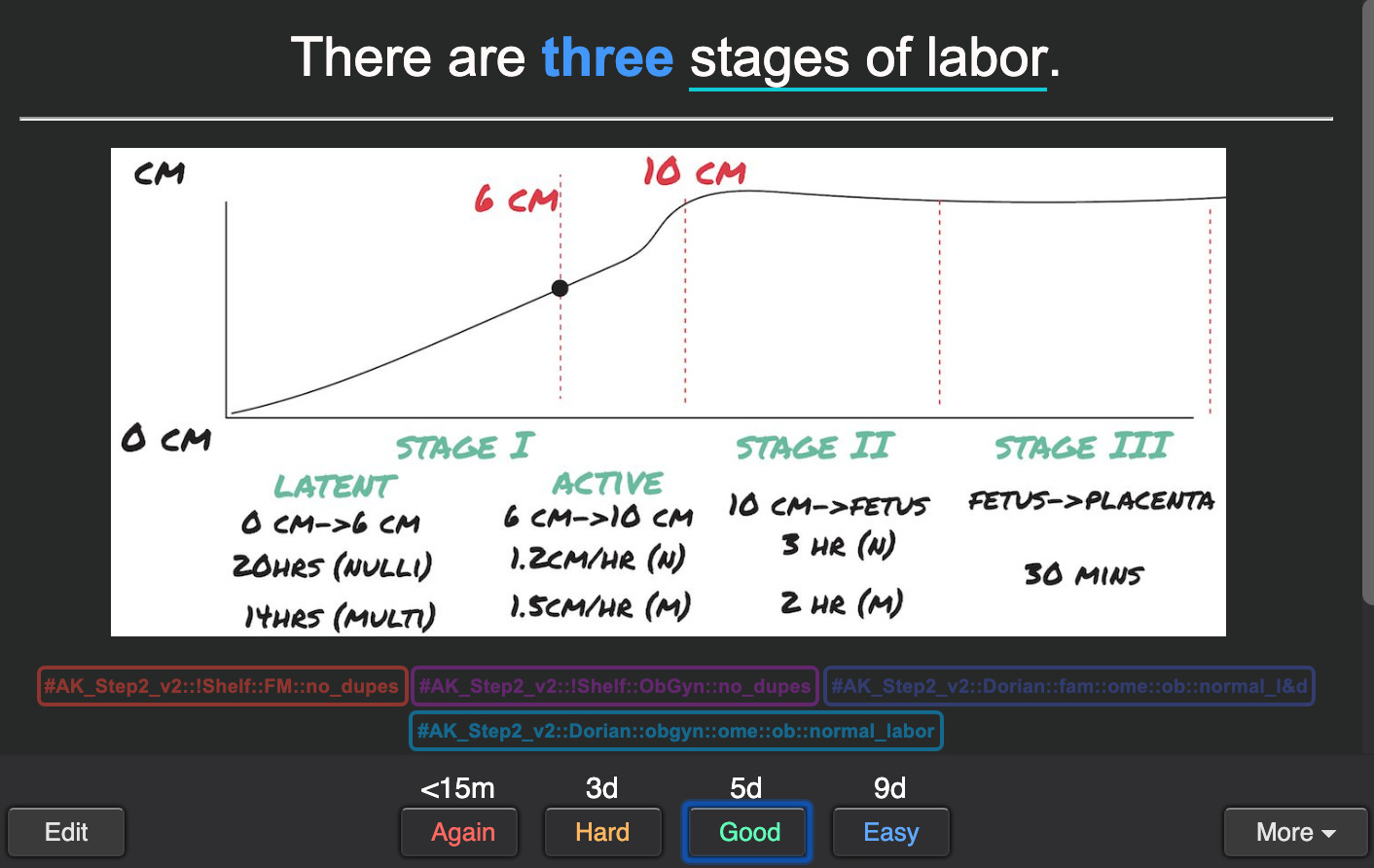The Spaced Repetition Hype!
Active recall anyone?
When I was in elementary school I used to play basketball during recess and live by the mantra "Ball is Life." I'm now in medical school, where memorizing and recalling random facts is what I do, and my new mantra is "Anki is life."
Anki of course is the famous spaced repetition flashcard app adored by medical students. However, in recent weeks as I have become a deeper part of productivity and personal knowledge management Twitter, I've learned that there are many people interested in a spaced repetition system (SRS), and most of them are not using it solely for memorizing discrete and random facts.
In this post, I want to talk about the uses of SRS and my thoughts on using them for studying and fact recall versus personal knowledge management.
A quick note: Lots of information in this post comes from a rabbit hole I went down when going through Andy Matuschak's notes on spaced repetition memory systems. If you want to learn more, I'd highly recommend checking out his work.
What is spaced repetition?
Spaced repetition is the idea of testing ourselves about a specific concept or idea at increasing intervals just as that idea is about to be forgotten from our mind. It is based on the now famous Forgetting Curve discovered by Hermann Ebbinghaus, which shows us that we can combat forgetting something we have learned by reviewing it at spaced intervals that increase with each revision until a concept is embedded in our long term memory.

Apps like Anki have taken this idea and built an algorithm around it that will take your flashcards and show them to you in a specific interval based on how you rate them during your review. Cards that you feel comfortable with get pushed further into the future with increasing intervals. Cards that you don't think you know show up more frequently in your reviews until you learn and, as Anki calls it, "Mature" them.

Does spaced repetition work?
In short, yes it does. Many research studies have shown that retention over time increases with spaced repetition and active recall (i.e. testing yourself on specific knowledge). On top of this, many people who are in the productivity, studying, and knowledge management space have sworn by learning via active recall and spaced repetition. One of the biggest proponents of this is Ali Abdaal who has many YouTube videos on why you should studying using a SRS.
My experience with spaced repetition has been exclusively through medical school where I use flashcards I make plus pre-made flashcards to study for school and board exams. I have found them to be very useful, but there are limiting factors (especially when using pre-made decks that are not my own).
Andy Matuschak does a good job of fleshing out the limitations of systems like Anki in his notes. The gist is that tools like Anki are good for rote memorization but aren't the best way to learn deeper concepts that need context. Because each card is a unit in itself, you can lose sight of the bigger picture when only focusing on the details.
This is the difficulty when engaging in spaced repetition for personal knowledge management. Most of the time, the learnings that you have in your personal knowledge management system are context-dependent. Additionally, if you are bringing in ideas from multiple sources (which is what tools like Roam Research allow users to do), the context becomes even greater. Distilling all of that knowledge into a single flashcard or even series of flashcards comes at the cost of losing the context and doesn't seem to work (at least not as well).
There are many people and companies working on this idea and the introduction of SRS into personal knowledge management seems to be on the rise. Tools like Roam Research and RemNote are making people think about what SRS for personal knowledge can look like. Andy is also coming up with his own solution (rooted in his mnemonic medium - a topic for another post!)
Final Thoughts
SRS is getting bigger and tools for incorporating it into your own personal knowledge management system might be on the way. For now though, it seems like the best use case is still for memorizing facts in school that you may need on an exam but here is a list of interesting and different ways people are using SRS.
If you use a SRS in your life, I'd love to hear about! Feel free to reply to this email and if you're reading this post on my website, I'd love for you to subscribe to the newsletter! As always, if you think this post could be helpful to anyone else, do them a favor and share it with them. Happy active recalling!



